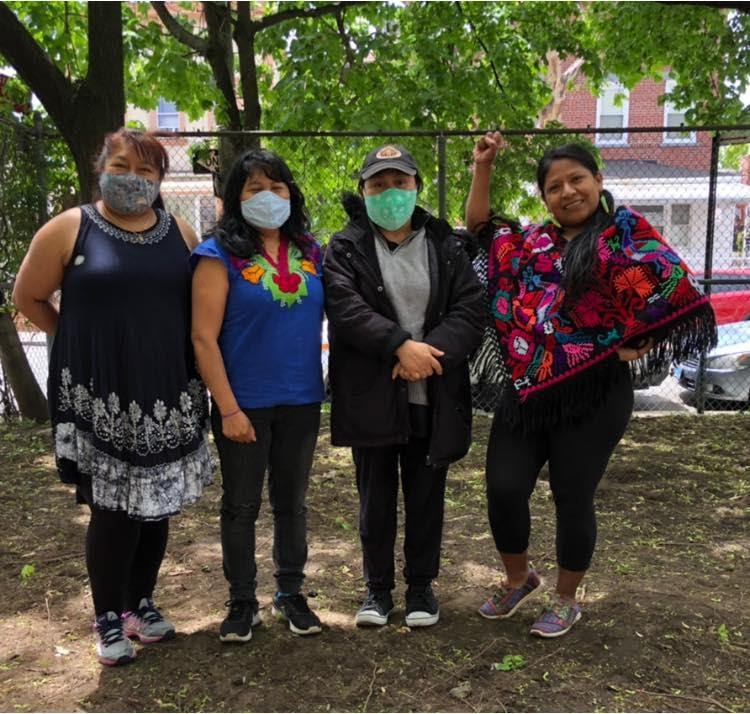
Moving to Overcome
Mujeres en Movimiento exercise in the face of adversity
By Juanita Ramos, June 21, 2021
To start a day’s “bailoterapia,” or dance therapy, Verónica Ramírez immediately sets the tone.
Nobody offered me therapy or something, so I have to learn by myself how to heal
“Let’s start the day with energy, ladies!” she tells a group of women ready to dance in a park in Queens.
One hour of Zumba moves and a WhatsApp group is all it takes for a group of women from Corona, Queens, to get over their problems, their stress and anxiety. Mujeres en Movimiento is a group that uses the movement to help dozens of Latinas to take care of their mental health.
During the pandemic, many Latinas lost their jobs and had to dedicate themselves to helping their children with homeschooling. However, Ramírez says her group experienced less stress because they had each other.
In 2008, while suffering from depression due to a miscarriage, Ramírez, a Mexican immigrant from Guerrero, started to take short walks to relieve her stress. She realized how much she loved it when she was moving.
“Nobody offered me therapy or something, so I have to learn by myself how to heal,” she said.
According to a study by Comptroller Scott Stringer’s office hat was based on a survey of 1,200 New Yorkers, more than half (52%) of women caregivers reduced their paid work hours during the pandemic, compared to only one in three (34%) men. It also notes that women of color are more likely than white women to have time off from work to care for a child (36% vs. 29%) and less likely to have paid leave.

Since most gyms do not allow kids inside, Ramírez decided to watch Zumba videotapes to learn some moves. She wondered if other women had been in the same predicament as her, so she went to dance in a community center in Corona.
More women joined the group, and all of them joined her while watching the videotape.
Thirteen years later, Mujeres en Movimiento is a second family for more that 30 women, most of whom are immigrants, housewives, mothers and workers. They have formed asisterhood to deal with difficult situations like the pandemic.
Valeria Reyes, a member of the group, says this group is her family, one with whom she now shares her economic frustrations. And as a mom who does not understand technology, she has had to learn to advise her 9- and 12-year-old children.
“Here we come to dance, to share recipes, and now to say how we are doing. Many times, we bring apples because we know that the others don’t have much food,” says Reyes, who has been with Mujeres en Movimiento for seven years.
She says dancing has opened “wings that will never close.”
Reyes also teaches weaving classes to the women in the group.

After the pandemic, everything changed and Mujeres en Movimiento stopped their exercise outside because most of them were helping their kids with home schooling or had contacted Covid-19.
“Most of the women in the group are undocumented, which means they don’t have access to medical insurance, so they have no therapist that help them with their mental health. These women are under a lot of stress every day and they have no options to decompress,” says Ramirez.
During the pandemic the group took care of each other through a WhatsApp group and helped each other with the struggle of being at home.
“For women sometimes it is hard to ask for some time off, and during the pandemic we really needed to be in a space we can talk to other who are experiencing the same were living the same situations,” says Reyes.
Now, after months of quarantine, they are back in Flushing Meadows Corona Park — not just for dancing but to take some English lessons and to create a community garden.
“There is a retired teacher in the group who is helping us to learn English. Also, we started with a community garden to help people who are still struggling with food insecurity and also as a distraction, “ adds Ramirez.
The future goal for the group is to have its own space where they can do workshops and, of course, dance. The balance during this past year has been positive, and Ramirez and the others have seen how having a sisterhood have helped them to live a better life with their families.
